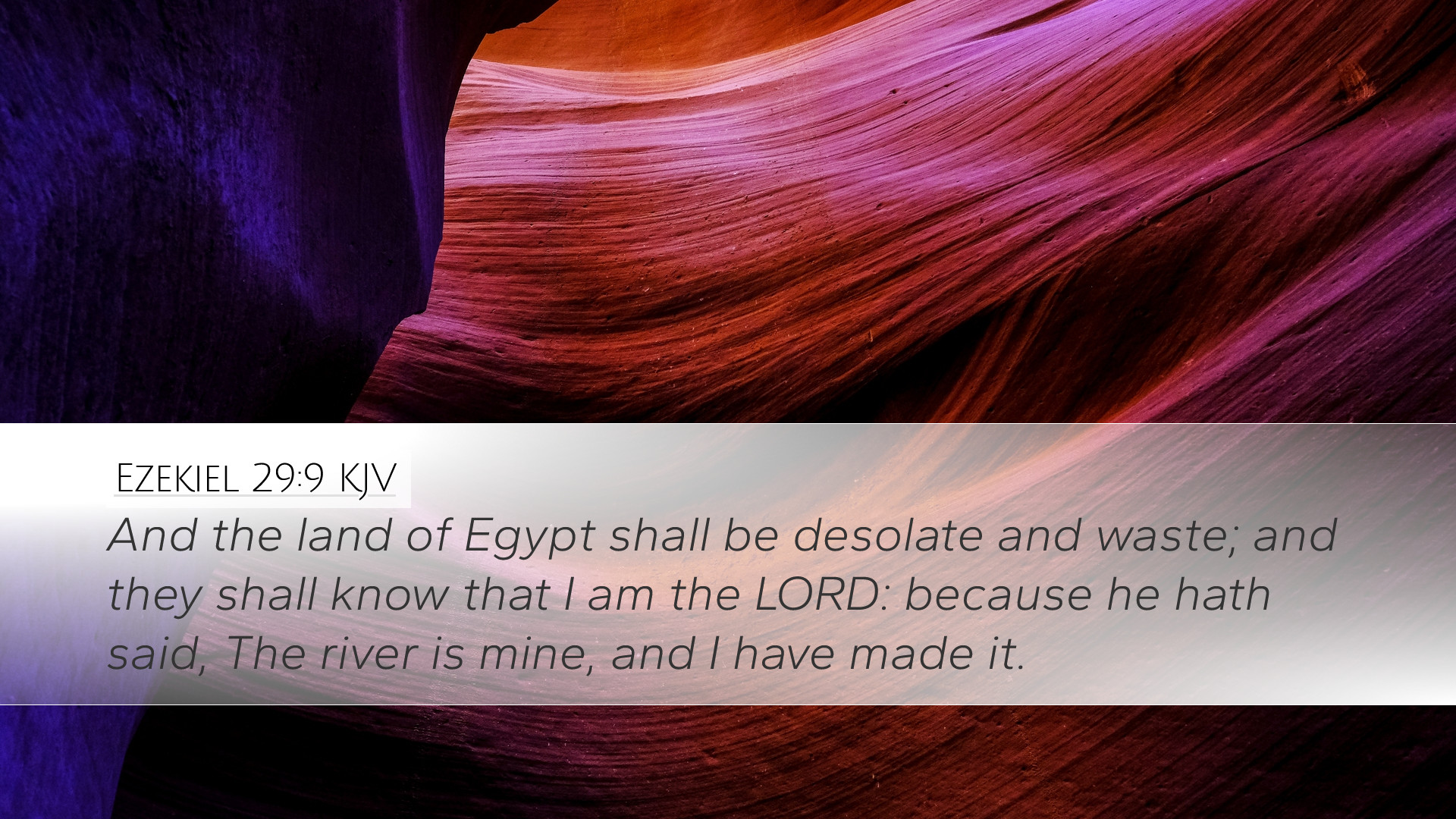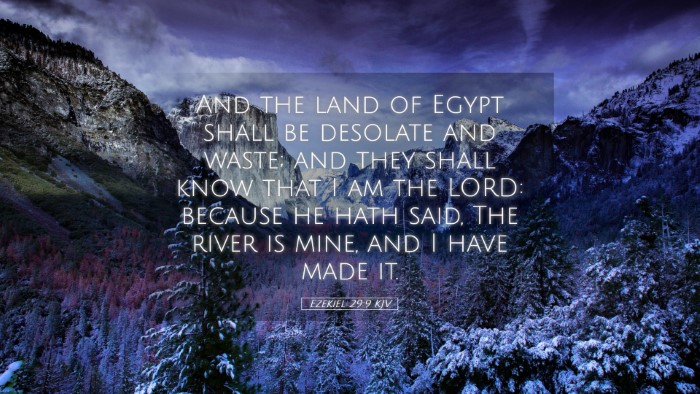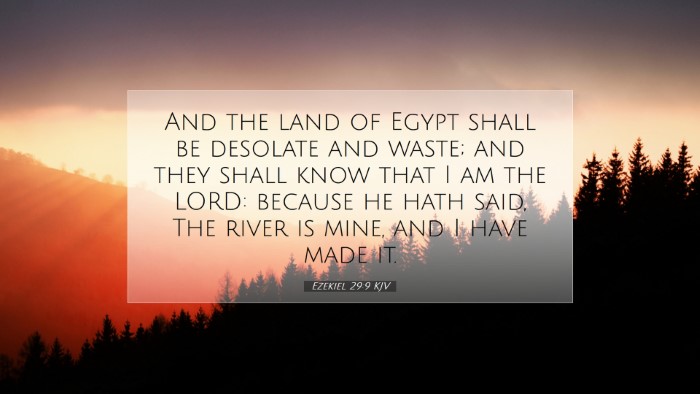Bible Commentary on Ezekiel 29:9
Verse Overview: Ezekiel 29:9 states, "And the land of Egypt shall be desolate and waste; and they shall know that I am the Lord: because he hath said, The river is mine, and I have made it." This verse forms part of God's proclamation against Egypt, emphasizing divine sovereignty and the judgment that would come upon the nation.
Commentary Insights
1. Contextual Background
Matthew Henry highlights the historical context of Ezekiel's prophecy, where Egypt had been a symbol of oppression and idolatry for Israel. The Egyptians held the Nile River in great esteem, attributing its provision to their gods. This chapter emphasizes that the true source of life and prosperity is not the river, but the Lord God Himself.
2. Desolation and Judgment
Albert Barnes elaborates on the consequences of Egypt's pride and idolatry. The desolation of Egypt is not merely geographical but spiritual. God promises to demonstrate His supremacy, showcasing that the calamities inflicted upon Egypt are a direct result of its rebellion against Him. This serves as a cautionary tale about the fate of nations that turn away from divine authority.
3. The Sovereignty of God
Adam Clarke emphasizes the sovereignty of God over the Nile River, which the Egyptians worshiped. Clarke notes that God declares His ownership of the river, thus dismantling the Egyptian belief system. The declaration "The river is mine" signifies that God has authority over creation itself and uses creation for His purposes. This points to the broader theological theme of God’s sovereignty in judgment and grace.
4. Theological Implications
- Understanding Idolatry: The text calls for a deeper understanding of idolatry and its ramifications. The Egyptians were guilty of idolizing their river, neglecting the Creator. This reflects a broader human tendency to rely on created things rather than the Creator.
- Divine Revelation: God’s purpose in declaring His judgments is relational. The phrase "they shall know that I am the Lord" indicates God's desire for recognition and reverence among the nations, asserting that through judgment, He reveals His nature and authority.
- Hope Amidst Judgment: While the prophecy speaks of devastation, it also opens a path for restoration and renewal, as such judgments often lead to repentance and acknowledgment of God's sovereignty.
5. Application for Today
For pastors and teachers, this text invites reflection on contemporary forms of idolatry. The prevailing idols of wealth, power, and status can similarly lead nations and individuals away from God. Understanding the implications of God’s judgment in Ezekiel challenges modern Christian leaders to call their communities back to God.
For students and theologians, this passage serves an academic pursuit of understanding God’s character in history. The historical context and divine responses in Ezekiel can enrich discussions on God’s justice and mercy and how they interplay throughout scripture.
Conclusion
Ezekiel 29:9 serves as a profound reminder of God's sovereignty and the inevitability of His judgments. By exploring this text with insights from public domain commentaries, we appreciate how the divine voice through Ezekiel communicates not just condemnation but an invitation to repentance and recognition of God as the ultimate authority. In a world rife with competing ideologies, the central message remains: God is Lord over all creation, and recognition of this truth is essential for spiritual awakening and societal transformation.


